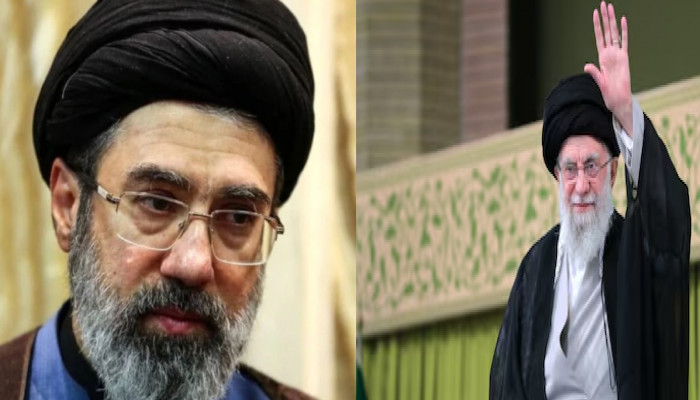Iran’s next supreme leader secretly chosen amid Khamenei health concerns
- In Reports
- 05:59 PM, Nov 18, 2024
- Myind Staff
Amid rising tensions with Israel, Iran faces a domestic crisis as reports suggest Supreme Leader Ali Khamenei is seriously unwell. His second son, Mojtaba Khamenei, has reportedly been selected to succeed him as the leader of the Shia Islamic nation. Speculation indicates Mojtaba might assume leadership even before his father's passing, a development that could have significant implications for Iran and the broader West Asian region.
Mojtaba Khamenei was secretly elected as Iran's supreme leader, according to Iran International. Ynet News cited the story from Iran International, a Persian-language media organisation with ties to Iranian rebels. A recent report by Iran International comes shortly after The New York Times revealed details of a covert struggle within Iran to determine Ali Khamenei's successor as supreme leader. At 85 years old, Khamenei's health has been declining for some time. On October 4, he made a public appearance, armed with a rifle, to address the Iranian people and lead prayers for Hezbollah leader Hasan Nasrallah, who was killed in an Israeli attack. According to Iran International, Khamenei ordered an unexpected meeting of the 60-member Assembly of Experts on September 26.
The Assembly members were instructed to choose his successor right away. "Despite initial opposition to both the decision and the process, the Assembly ultimately reached a unanimous agreement to designate Mojtaba as the successor following the leader's and his representatives' insistence, which allegedly included direct threats," reported YNet News, quoting the Persian media outlet. According to the sources, threats played a key role in keeping the meeting and its conclusion secret for five weeks. After Ayatollah Khomeini's death in 1989, the succession process faced minimal resistance. Several factors contributed to this smooth transition.
A key figure was Akbar Hashemi Rafsanjani, who played a unifying role among officials from the centre, right and left wings. Often referred to as the "kingmaker" by Iran International, Rafsanjani's influence ensured consensus. Once Rafsanjani endorsed Khamenei’s rise to power, opposition largely faded. In contrast, the succession following Khamenei’s tenure is expected to be more challenging. The absence of a unifying figure like Rafsanjani within the current power structure, combined with public discontent toward many individuals in Khamenei’s inner circle, complicates the process.
Khamenei had been carefully prepared as Khomeini's successor, serving as President before being appointed Supreme Leader. Ebrahim Raisi, who was also being groomed for the role, died in a helicopter crash in Azerbaijan on May 19, 2024, further intensifying the complexities surrounding Iran's future leadership. The assassination of Qasem Soleimani by President Donald Trump in 2020 also disrupted a figure with significant kingmaker potential. High-ranking officials have been marginalised, preventing the emergence of new power centres. Meanwhile, both political and social movements remain active, as seen in the protests sparked by the custodial death of Mahsa Amini.
Mojtaba Khamenei, the second son of Iran’s Supreme Leader Ayatollah Ali Khamenei, was born in 1969 in Mashhad, northeastern Iran. He studied theology under the guidance of his father and other esteemed scholars and continues to teach at the Qom Seminary, Iran’s largest Islamic seminary. He is married to Zahra Haddad-Adel, and the couple has three children. In Iran’s 2005 and 2009 presidential elections, Mojtaba supported President Mahmoud Ahmadinejad and was reportedly instrumental in securing Ahmadinejad’s 2009 victory. After the election, widespread protests erupted in June 2009, and Mojtaba was allegedly involved in efforts to suppress the anti-government demonstrations. Their alliance later soured when Ahmadinejad accused Mojtaba of embezzling funds from the state treasury.







Comments